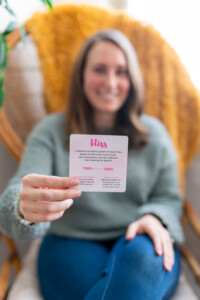Celiac Disease: The 411 on Getting Tested, Gluten Intolerances, & Gluten Free Recipes
[source]
As many of you know, I follow a (mostly) gluten free diet because I tend to be sensitive to wheat and gluten-containing products. By mostly, I mean that I eat gluten free 90% of the time, but do allow myself Ezekiel bread as the gluten in this bread is easier to digest, as well as the occasional cheat (i.e. a Christmas cookie or freshly baked North End Italian bread while waiting for dinner).
Since I’ve cut gluten out for the most part for almost three years now, I’ve noticed many positive changes, number one being that my digestion has improved tremendously. In college, I used to have terrible stomach pains, constant bloat, and unexplained inability to lose weight no matter what my lifestyle/diet/exercise regime. Now, I can happily say the bloat is pretty much gone, and I feel OK eating just a little piece of bread or a brownie here and there because I don’t go overboard re: stomach issues.
But now I’m left with a pretty BIG problem. I had gone to the doctors this week to get tested for Celiac disease, an autoimmune disease that is caused by the intake of gluten (the protein found in many wheat products) which leads to damage to the small intestine, and an inability to absorb certain nutrients. I had wanted to get tested for a while because while I know I am sensitive to gluten (and have some sort of intolerance), Celiac disease is a whole different issue. There are a variety of symptoms, and some people may never even have physical symptoms. Unfortunately, there is no treatment for the disease, other than cutting out gluten 100%. Not even a crumb, a lick, a bite.
So here’s where my problem comes in: The doctor said that since I had cut out gluten for so long* (for the most part), I could not be tested as the blood test would yield a false negative result even if I did have the disease. So my two options are:
*Note: If you suspect you may have Celiac disease, before cutting out gluten on your own, I would talk to a doctor first to see if you can get tested so you won’t have to go through the craziness I now have to. Always consult with your doctor first.
A.) Cut gluten out completely as if I had the disease, and just never know. However, if taking this option, I’d need to be extra careful at restaurants, watch out for cross-contamination and literally NO CHEATING whatsoever. I’d also never know if I carry the gene, which could pose problems in the future for my kids getting tested.
B.) A “gluten challenge” – Add gluten back into my diet for two to three months, eating it as much as a “regular person,” so the doctor said. This means I could potentially harm my body for a short period, go through some discomfort, but at least I’d know the truth and get an accurate diagnosis.
I went with option B, as I don’t think I could go through life not knowing if I had something. Also, I think for me I’d need that reassurance of an accurate diagnosis to make me be more careful with my food choices, and to hold me accountable. The good news is, if I don’t in fact have Celiac disease and it in fact really is just a gluten intolerance, I may be able to add small amounts of whole wheat products back into my lifestyle gradually, pending they don’t bother my stomach.
So far, it’s been three days back on the wheat, and I’ve been feeling OK. No terrible bloating or issues thus far (fingers crossed). I’ve been super careful with my food choices however, being sure to keep them as REAL as possible meaning whole grains and natural sources only. Just ’cause I have the doctor’s order to go ahead and eat wheat again doesn’t mean I’m going to stuff my face with pizza and beer every day ( hehe!) Lucky me: I don’t even like beer. Wish me luck!
If you’d like to read more about the differences between Celiac disease, wheat allergies, and gluten intolerance, check out this article here from the American Celiac Disease Alliance, which explains it wonderfully! Check out some of my favorite gluten free recipes here.
Do any of you have food allergies or sensitivities? Did you go through any struggles in finding an accurate diagnosis? Have you learned to live with your allergy/sensitivity/ intolerance with healthy substitutions? Please share your experience here!







January 13th, 2012 at 4:25 pm
We have a friend who has Celiac disease, and I’m not sure how she got tested for it, but it’s so interesting that you only have the two options. I would have picked b) too.
In Canada, Pizza Pizza offered a gluten free crust, which our friend could have when they visited us, but I’m not sure what options you have here. We moved from Toronto to Boston 🙂 And I saw you on the Boston Blogger list! I’ll see you at the event – and ya, good thing you don’t like beer! 🙂
January 14th, 2012 at 3:18 pm
Thank you so much for stopping by my blog, first of all!
The good news is there are SO many gluten free options these days, that the lifestyle really isn’t that bad. Health food stores now have everything from gluten free pizza dough to bagels and muffins, and they are actually quite delicious!
And I guess the other option would be to just keep on doing what I was doing before, but then I’d never know if I have Celiac’s or not, which wouldn’t be very healthy for my body so I guess B is the way to go!
Look forward to meeting you at the event… : ) P.S. Your blog is absolutely gorgeous…what beautiful pictures!
January 15th, 2012 at 2:39 pm
Rachel, I’m not really sure if you know this, but the only way to definitively test for Celiac Disease is to have a biopsy taken of your intestines. Blood tests are not reliable markers for Celiac Disease. If you don’t believe me, I would suggest you do a Google search on this because any reliable website (like a university’s health dept. not naturalhealthnews.com or a site like that) and you’ll find this out. Not trying to make you look dumb, but Celiac Disease deserves a reliable, credible diagnosis.
January 15th, 2012 at 2:50 pm
Thanks for the post Ashley. While this is true, I’m going to try to get a blood test first as my aunt just tested positive from one. If it’s negative, I may ask for a second opinion and get a biopsy or a genetic test. But baby steps first.. I’m hoping (and am pretty confident) that I just have a gluten sensitivity as my symptoms (slight bloating and discomfort) line up to those who have food sensitivities/intolerances.
We’ll see how the test goes, and then I’ll move forward from there. A blood test is the first step, and unfortunately it was hard enough for me to have a doctor sign off for one of those, so it may be quite the journey but obviously my health comes first.
My sources are from extensive research, medical information my doctor gave me, and sites like Mayo Clinic and The American Celiac Disease Alliance. http://www.mayoclinic.com/health/celiac-disease/DS00319 I never get all my info on one site (be in Natural News or others), and always suggest people discuss any medical issues with a doctor first. This is just my experience.
I appreciate your input Ashley, and am always open to comments/concerns/ideas etc.!
July 16th, 2012 at 11:34 am
[…] ordered off the Gluten Free menu because, although I don’t have Celiac’s disease, I still try to consume a gluten free diet most of the time as it makes me feel better inside and […]
July 27th, 2012 at 5:25 pm
Nice! I’ve been searching for this info , thanks for posting, wheat free diet.
October 31st, 2012 at 6:31 am
Autoimmune diseases are really hard to cure. Perhaps stem cell research can do something about it. ,
Brand new short article on our homepage
http://www.foodsupplementdigest.com/benefits-of-jojoba-oil/
November 2nd, 2012 at 8:14 am
Celiac disease is a condition that damages the lining of the small intestine and prevents it from absorbing parts of food that are important for staying healthy. The damage is due to a reaction to eating gluten. –
Our own blog page
http://www.foodsupplementdigest.com/magnesium-benefits/
February 19th, 2013 at 9:18 pm
An autoimmune disease, in which your immune system attacks its own tissues, can affect your joints, muscles, cells, nerves, glands and organs. Exercise is vital to building and maintaining strong muscles. However, you can experience muscle weakness in your limbs directly following an exercise session — particularly if you suffer from certain autoimmune diseases. If you have an autoimmune disease, consult your doctor regarding specific exercise recommendations.’
My current website
<.http://www.foodsupplementcenter.com/sucralose-side-effects/